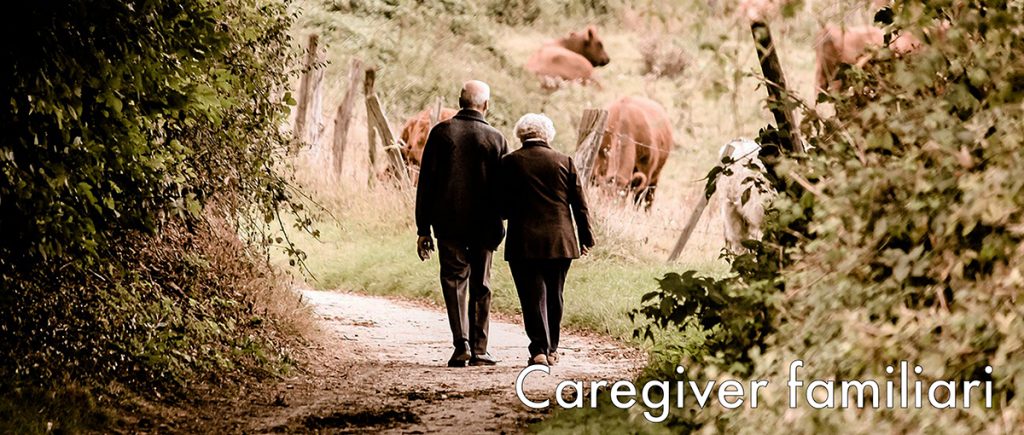
The Place4Carers project was conceived to co-produce a new community social service, promoting the involvement of family caregivers of elderly people residing in remote, rural areas of the Camonica Valley (Lombardy Region).
Cristina Masella, Professor of Business Administration, School of Management, Politecnico di Milano
Eleonora Gheduzzi, PhD Candidate, School of Management, Politecnico di Milano
The current health emergency has provided the opportunity to reflect on the importance of community assistance and home care, especially in favour of fragile elderly people. In Italy, community assistance is entrusted primarily to 7 million family caregivers, a category that mostly goes unnoticed. Family caregivers are predominantly women aged 50 to 60. During the health emergency, more than 50% of these caregivers suspended or reduced their work activities because of the increased burden of caring for their loved ones.
“We have a thousand worries. Our life is very hard. We haven’t even the smallest moment to ourselves; a time in which to recharge our batteries. And community assistance is steadily decreasing,” Caregiver (55), Breno.
In addition to the psychological hardship of seeing a loved one suffer, family caregivers experience intense stress, a sense of impotence, and solitude due to their ‘burden of assistance’. To prevent the emergence of new vulnerabilities on the territory, a network of healthcare and social service providers must be created that can collaborate closely with family caregivers and provide them with the assistance they need in caring for the elderly. The goal of establishing such a network is twofold: to support caregivers, improving their psychological and social condition, and to strengthen the provision of community assistance to vulnerable elderly people.
“We have a greater awareness, both of ourselves and of the relationship we can establish with healthcare operators and professionals to assist our loved ones. I have matured a lot because I now realise what I can do,” Caregiver (77), Breno
The Place4Carers project has responded to these needs through participatory scientific research actions involving family caregivers who look after dependant elderly people living in the Camonica Valley. This mountainous, hard-to-reach area was chosen as the scope of the project because here, the caregivers’ assistance is truly crucial given their limited access to healthcare and social services.
The three-year project was funded by Fondazione Cariplo and coordinated by the EngageMinds HUB of the Università Cattolica, in collaboration with the School of Management (SOM) of the Politecnico di Milano, the Need Institute, and Azienda Territoriale per i Servizi alla Persona (ATSP), the local social welfare centre in Breno, Brescia.
In particular, the Politecnico di Milano’s SOM team was entrusted with mapping the needs and the psychological and social condition of family caregivers in the Camonica Valley. This study revealed that caregivers spend an average of 75 hours per week caring for their loved one, experiencing greater physical and psychological fatigue than those who benefit from greater healthcare and social services.
These and other results formed the basis for a new, co-designed service, “S.O.S CAREGIVERS: feeling well to help others feel well”, comprising four co-designed workshops involving 26 family caregivers, 6 researchers and 3 ATSP representatives.
The School of Management team supported ATSP in the implementation of the service, by evaluating its feasibility first and then its impact. The service comprises four macro-activities and has helped more than 150 caregivers:
- Know more, know better: training courses aimed at providing family caregivers with know-how and practical skills for more effective management of their loved ones.
- Tradition and memory: a sociable support group offering family caregivers the chance to exchange stories relating to life in the Camonica Valley, mediated by the support and supervision of a psychologist.
- Information is good for the heart: the establishment of various local information channels, both online and offline, to inform caregivers about the community services available to fragile elderly people and to promote the new SOS Caregiver service.
- Citizens’ Committee: a participatory organisational structure managing the service, supervising its performance and providing suggestions to improve its effectiveness. The Committee is made up of family caregivers, ATSP representatives, and researchers.
The results were more than satisfactory. For a more comprehensive, overall evaluation of the service, the School of Management team involved all the stakeholders who collaborated in implementing the service: family caregivers, ATSP representatives, researchers, trainers, professionals, and four local care homes. Overall, the service met with a very high level of satisfaction (around 90%), good understanding of course contents (around 88%), and a considerable participation rate, given the hard-to-reach context (around 20%). Moreover, the ATSP representatives, the professionals, and the managers of the four care homes involved were interested in continuing the service, highlighting the importance of supporting family caregivers in caring for the elderly at home.
“While we didn’t receive any physical help, the training and assistance we received has helped us manage better our day-to-day problems”, Caregiver (78), Breno.
“We were able to gain a better insight of the day-to-day difficulties experienced by family caregivers in caring for the elderly, and this helped us to review our services in order to address the needs not just of the elderly but of the family as a whole”, an ATSP member of staff, Breno.
This project has kicked off the establishment of a community network involving caregivers, researchers, ATSP, ATS Montagna (the mountain health protection agency), ASST Vallecamonica (the local community social healthcare company), Comunità Montana (the Italian mountain community), Assemblea dei Sindaci (the assembly of local mayors), four care homes in the Camonica Valley and a number of cooperatives.
The project may have come to an end, but Place4carers keeps on going!
For further information on the Place4Carers project, please click here to watch the project video and here to the final presentation.






